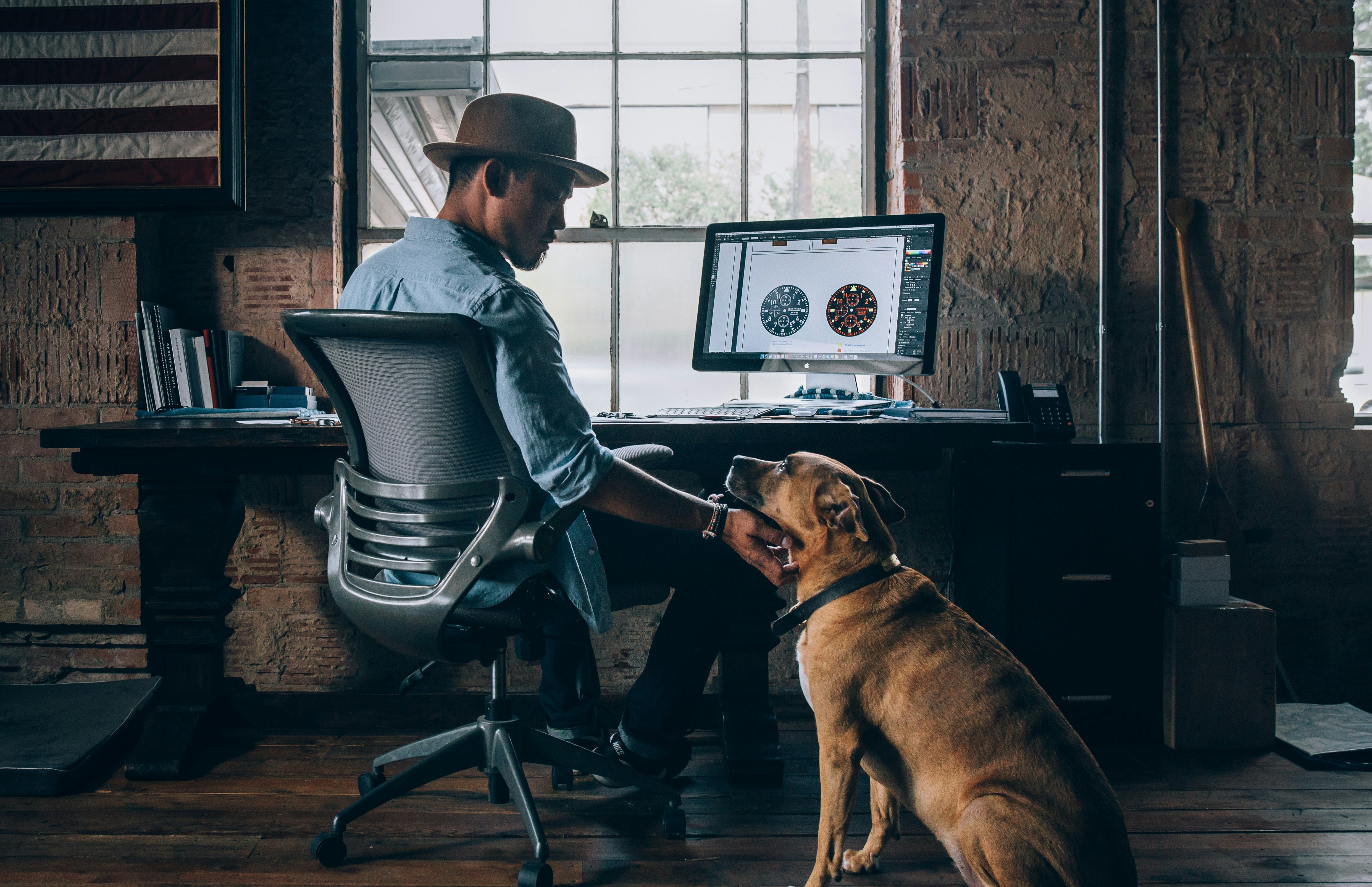Dog poop isn't the most glamorous topic, but it's an essential part of pet ownership. This guide will help you navigate the sometimes messy world of dog poop, from understanding what's normal to identifying potential health issues. We'll even share some tips on how to keep your dog's digestive system happy and healthy.
What to Look For in Your Dog's Stool
Your dog's poop can offer valuable insights into their well-being. By carefully observing its appearance, you can potentially identify early signs of underlying issues.
What Different Colors Mean
Normal dog poop is typically a shade of brown, though the exact hue can vary based on diet.
Abnormal dog poop can be black and tarry, which may indicate bleeding in the upper digestive tract. If it’s red, it could signal bleeding in the lower digestive tract. Green dog poop is often associated with grass consumption but can also indicate bile issues or intestinal problems. Yellow or gray dog poop might suggest liver or pancreatic problems.
Consistency Check
Normal dog poop is firm but moist, holding its shape without crumbling. Diarrhea results in loose and watery stools, while constipation produces hard, dry, and infrequent stools. Your dog’s poop can also include a slimy mucus-like coating which can indicate inflammation in the colon.
What Your Dog's Poop's Shape Reveals
Typically, dog poop is cylindrical or sausage-shaped. In some cases, it could be small, like pellets, which indicates dehydration or constipation. In the case where your dog’s poop is flat or ribbon-like, it could mean that your furry friend has some intestinal obstructions.
What Does Your Dog's Poop Smell Like?
While all dog poop has an unpleasant odor, the smell should be relatively mild. A strong or foul odor might suggest a digestive upset or an infection.
How Often Should Your Dog Poop?
Dogs generally have one to two bowel movements per day, but there are some individual variations. You should take note of any significant increases or decreases in frequency.
What Shouldn't Be in Your Dog's Poop
Your dog’s poop should be free of blood, mucus, or parasites if your furry friend is fine. Any blood in the stool can indicate various issues, from minor irritation to more serious conditions. Mucus is often a sign of inflammation in the colon. Sometimes, you might notice worms or other parasites in your dog’s poop, a sure sign that something is afoot with their health.
What Your Dog's Poop Could Mean
Worried about your dog's health? Your dog's poop can provide valuable clues about what's going on inside. Let's explore some common concerns and what they might mean.
Diarrhea
-
Causes: Dietary indiscretion, food allergies, bacterial or viral infections, intestinal parasites, inflammatory bowel disease (IBD), pancreatitis, and certain medications.
-
Symptoms: Loose, watery stools, often accompanied by increased frequency.
-
When to worry: Persistent diarrhea, diarrhea with blood or mucus, or diarrhea accompanied by vomiting, lethargy, or loss of appetite should prompt a veterinary visit.
Constipation
-
Causes: Dehydration, lack of fiber, insufficient exercise, intestinal obstructions, or underlying medical conditions.
-
Symptoms: Hard, dry stools that are difficult to pass, straining, and decreased appetite.
-
When to worry: If your dog is straining excessively or showing signs of pain while pooping, consult your vet immediately.
Blood in Stool
-
Causes: Intestinal parasites, inflammatory bowel disease, anal gland issues, colitis, tumors, or bleeding disorders.
-
Symptoms: Bright red blood on the outside of the stool indicates bleeding in the lower digestive tract, while dark, tarry stools suggest bleeding in the upper digestive tract.
-
When to worry: Any amount of blood in the stool warrants a veterinary examination.
Mucus
-
Causes: Inflammation of the colon, infections, or dietary sensitivities.
-
Symptoms: A slimy coating on the stool.
-
When to worry: Persistent mucus or mucus accompanied by other symptoms should be evaluated by a vet.
Parasites
-
Causes: Contact with infected feces or contaminated environments.
-
Symptoms: Visible worms in the stool, diarrhea, vomiting, weight loss, and a dull coat.
-
Prevention: Regular deworming and proper fecal examinations are essential.
When in doubt, it’s best to err on the side of caution. If you notice any significant changes in your dog's stool, consult with your veterinarian for proper diagnosis and treatment. Early detection is key to maintaining your pup’s overall health.
Keeping Your Dog's Gut Happy
A healthy digestive system is crucial for your pup’s overall well-being, and you don’t have to wait for problems to arise before making positive changes in their lifestyle. From dietary changes to improved cleaning regimes, these easy, proactive steps can help keep your dog’s gut running smoothly.
Choosing the Right Food for Your Dog
Choose a diet formulated for your dog's age, size, and activity level. Go for foods with high-quality protein like chicken, fish, or lamb and digestible carbohydrates. Including fiber can help regulate your dog’s bowel movements.
Consult your vet about appropriate fiber supplements if needed. Human food can upset your dog's digestive system, so you should avoid giving your furry friend any table scraps. If you’re planning on changing your dog’s food, introduce any new foods gradually to avoid digestive upsets. Make sure your pup has constant access to clean, fresh water.
Keeping Your Dog Active
Daily exercise helps stimulate digestion and bowel motility in your dog. A brisk walk, a game of fetch, or even a playful session in the backyard can help stimulate digestion. However, you should make sure your furry friend avoids excessive exercise immediately after meals.
A Healthy Home for a Healthy Gut
Keep your dog's food and water bowls clean to prevent bacterial contamination. Other environmental factors that have an impact on your dog’s overall health and digestion include stress and routine. You should make sure to minimize stress, as it can affect your pup’s digestion, and maintain a regular feeding and exercise schedule.
Boosting Gut Health with Supplements
Probiotics are beneficial bacteria that can support digestive health. Your vet might also recommend fiber supplements for your puppy for constipation.
Regular Vet Check-ups
Schedule regular check-ups to monitor your dog's overall health, including their digestive system. In the case of any irregularities with your dog’s poop, ask your vet to conduct a fecal exam to detect parasites and other intestinal problems.
Monitoring Your Dog's Stool With Paw Pail
Your dog's poop is a vital indicator of their overall health. By understanding the nuances of color, consistency, frequency, and content, you can become a more informed pet parent.
To make responsible pet ownership even easier, consider using PawPail. This innovative product simplifies the task of cleaning up after your furry friend. With PawPail’s pet waste management solutions, you can quickly and hygienically dispose of dog poop, reducing the risk of bacteria and disease transmission.
Ready to invest in your dog’s well-being? Choose PawPail products today!



